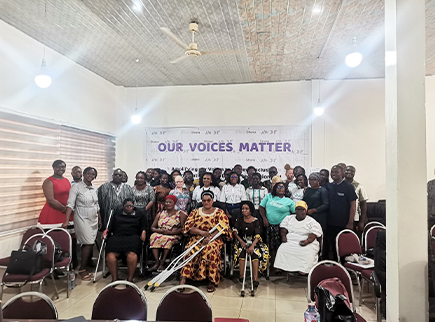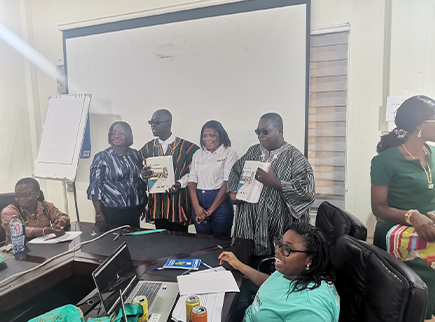A report on experiences of women and girls with disabilities and their caregivers says majority of them (73 per cent) have experienced some form of violence
It said 45 per cent of the abuse was physical, 35 per cent sexual, 60 per cent psychological. Fifty-five per cent of the abuse was perpetuated by family members and partners.
The project was implemented by Voices of Women and Children with Disabilities in Ghana (VOWAC Ghana), with support from the African Women’s Development Fund (AWDF) among 171 participants in the 16 regions of Ghana.
The report,which is in braille and audio formats, was launched in Accra by VOWAC Ghana with funding from the African Women’s Development Fund.
The survey, culminating in the report, was undertaken within the framework of the Beijing Declaration and Platform for Action (BDPfA). The report aligns with global efforts toward the Beijing +30 review and provides a disability-inclusive perspective on gender equality and empowerment goals.
According to the report, only 28 per cent of women and girls with disabilities felt empowered to disclose incidents of violence, and 65 per cent of caregivers noted that the individuals they supported were uncomfortable reporting to authorities.
It attributed the reluctance to report to the perception of insufficient support available, with merely 33 per cent of women indicating awareness of resources for survivors and only 15 per cent of caregivers having accessed supportive services post-incident.
The report indicated that 52 per cent of women and girls reported enduring long-term mental health effects, while 40 per cent of caregivers observed symptoms of post-traumatic stress in the individuals they assisted.
It revealed that the pervasive societal stigma surrounding disability compounded the challenges, with half of the women reporting discrimination following their experiences of violence.

A striking 72 per cent of caregivers believed that societal attitudes toward disability contributed significantly to the violence faced by women and girls within that demographic.
Mrs Beatrice Akua Mahmood, Founder, VOWAC said violence against women and girls with disabilities in Ghana needed immediate intervention for its urgent and critical nature.
She said despite the existence of legislation such as the Domestic Violence Act (Act 732), significant gaps continued to hinder the protection and support of vulnerable women and girls.
Mrs Mahmood said a review of the Ghana Domestic Violence Act 2007 Act 372, recommended an amendment of the Act to include specific provisions that addressed the needs of women and girls with disabilities, ensuring that their experiences of domestic violence were recognized and addressed.
The Founder said facilities and materials for reporting and processing of such cases must be in accessible formats and buildings accessible to individuals with disabilities.
She emphasised the importance of the establishment of dedicated support services for women and girls with disabilities who were victims of domestic violence, including specialized shelters, counseling services, and legal assistance.
VOWACGhana is a non-profit organization which promotes the full inclusion and participation of women and children with disabilities and caregivers of children with disabilities in Ghana.

